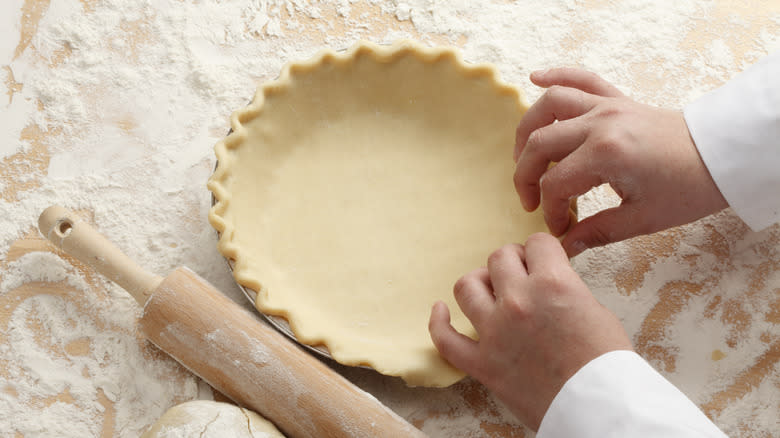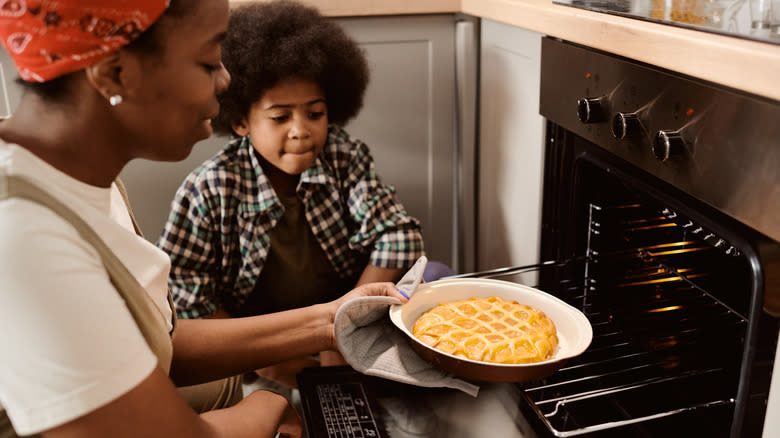The Tip To Remember For Making Pie Dough At A High Altitude

While it may seem simple on the surface, a lot goes into making the perfect pie dough. Even tiny changes in the temperature of the room or the ingredients you use can make or break these recipes. One other important factor to keep in mind when baking pie dough is altitude. Yep, that's right. Depending on where you live, altitude can drastically affect the outcome of your next baking endeavor.
This fact is especially true for those who live at high altitudes, so if your kitchen is situated on a mountaintop or hill, listen up. There is an important thing to keep in mind when you're making pie dough, and it has to do with how you bake it.
Pie crust can dry out much faster in high altitudes, so keep an eye on your pie while it's baking. You might not have to cook it as long as the recipe says to. This phenomenon might seem random, but there's actually some reputable science behind it. For the sake of your pie crust, let's get into it.
Read more: Cake Hacks Every Baker Will Wish They Knew Sooner
How Altitude Affects Your Pie Crust

Altitude seems like an unlikely factor to keep in mind during the pie-baking process, but it's actually a very important one. Here's why.
As you go higher up in altitude, the air pressure will decrease. This is an important thing to keep in mind when baking because liquids can evaporate faster in lower pressures. This fact means baked goods in particular can become dry very quickly if you don't keep your eye on things. Higher altitudes also makes gases expand quicker. This can make baking sodas and powders expand too soon in your pie crust, making for a baked good void of any proper structure.
Now it's always best to try a recipe as-is first to see how it comes out, but these unfortunate mishaps are always possible at higher altitudes. For those at sea level or below, you should be good to bake as normal. For those up in the mountains however, keep an eye on your pie. You can always adjust a recipe depending on how it comes out.
How To Prevent Those Baking Disasters

While these scientific facts are important to remember when baking pie dough, they can apply to anything in the baking world, from cakes to cookies. Don't just deal with these potential disasters though -- do something to change the outcome.
Since everything tends to heat up faster at higher altitudes, those living in the mountains can experiment with shorter baking times and higher temperatures to prevent baked goods from drying out or taking on wonky textures. Alternatively, bakers can try adding a little more liquid to their pie dough to make sure it stays adequately moist. Finally, bakers can also opt to use less baking powder or baking soda to prevent a baked good from rising too fast.
If you live in an area with high altitude, feel free to try your next baking recipe as is, but keep in mind it might face some problems. If that's the case, try some of these hacks to regain some normalcy for your pie dough and whatever else you're whipping up in the oven.
Read the original article on Daily Meal.

